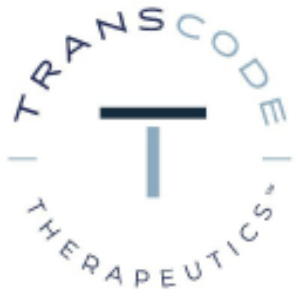TransCode Therapeutics Reports Positive Preclinical Results with its Immunotherapy Candidate, TTX-siPDL1, in Pancreatic Adenocarcinoma
TransCode Therapeutics (RNAZ) announced positive preclinical results for its immunotherapy candidate TTX-siPDL1 in treating pancreatic adenocarcinoma. After two weekly treatments with TTX-siPDL1 and gemcitabine, tumor volumes were significantly reduced, with 75% of treated animals surviving compared to 25% for gemcitabine alone. The study demonstrated effective PD-L1 inhibition and immune activation. CEO Michael Dudley highlighted the platform's capability to overcome challenges in RNA delivery within tumors, marking a significant opportunity for the company.
- TTX-siPDL1 showed significant tumor volume reduction in preclinical studies.
- 75% survival rate in treated animals compared to 25% in controls.
- Effective PD-L1 inhibition and immune activation were observed.
- None.
Insights
Analyzing...
BOSTON, Nov. 09, 2022 (GLOBE NEWSWIRE) -- TransCode Therapeutics, Inc. (Nasdaq: RNAZ), an RNA oncology company committed to more effectively treating cancer using RNA therapeutics, today reported positive preclinical results with its immunotherapy candidate, TTX-siPDL1, in pancreatic adenocarcinoma.
After two weekly treatments with TTX-siPDL1 combined with the standard-of-care chemotherapeutic, gemcitabine, tumor volumes were
Pancreatic cancer has proven difficult to treat with conventional drugs and has been resistant to initial immunotherapy approaches. The reason pancreatic cancer is challenging to treat with immunotherapy is in part due to the presence of a thick fibrous corona surrounding the tumor. In human pancreatic ductal adenocarcinoma, or PDAC, up to
“This is yet another opportunity to showcase our TTX platform which is designed to overcome challenges faced by existing lipid and liposomal systems in delivering RNA therapeutics inside tumor cells and metastatic sites. Demonstrating the ability to deliver RNA therapeutics inside tumors and metastases and to affect documented targets for cancer treatment that have remained undruggable until now using an RNA approach represents a major opportunity for our company,” indicated Michael Dudley, CEO and co-founder of TransCode.
Dr. Zdravka Medarova, TransCode’s CTO and scientific co-founder, indicated that “the TTX delivery platform has already been shown in our preclinical studies to successfully deliver RNA therapeutics to oncology targets, including using small interfering RNAs, antisense oligonucleotides, and non-coding RNA mimics. Recent updates to our company website include an animation that showcases our delivery platform as well as the MOA of our lead therapeutic candidate, TTX-MC138.”
Medarova continued, “We are looking forward to moving into the clinic to evaluate our therapeutic candidates in patients and to potentially translate our preclinical success to cancer patients around the world.”
The study was conducted in collaboration with Dr. Byunghee Yoo, a faculty member of the Athinoula A. Martinos Center for Biomedical Imaging at the Massachusetts General Hospital and Harvard Medical School. The Athinoula A. Martinos Center for Biomedical Imaging at Massachusetts General Hospital is one of the world’s premier research centers devoted to development and application of advanced biomedical imaging technologies. The Center is part of the Department of Radiology at Massachusetts General Hospital and affiliated with both Harvard Medical School and the Massachusetts Institute of Technology.
About TransCode Therapeutics
TransCode is an RNA oncology company created on the belief that cancer can be effectively treated using RNA therapeutics. The Company has created a platform of drug candidates designed to target a variety of tumor types with the objective of significantly improving patient outcomes. The Company’s lead therapeutic candidate, TTX-MC138, is focused on treating metastatic cancer, which is believed to cause approximately
Forward-Looking Statements
This release contains “forward-looking statements” within the meaning of the Private Securities Litigation Reform Act of 1995, including, without limitation, statements concerning the results of a preclinical study of TTX-siPDL1 in pancreatic adenocarcinoma, statements concerning pancreatic cancer, statements concerning the results of preclinical studies in other tumor types, statements concerning the expected clinical results of TransCode’s therapeutic candidates, statements concerning the ability of TransCode’s TTX platform to deliver RNA therapeutics inside tumors and metastases, statements concerning the results of RNA research, statements concerning the potential for treating cancer with RNA therapeutics, statements concerning the timing and outcome of expected regulatory filings and clinical trials, and statements concerning TransCode’s development programs and TTX technology platform generally. Any forward-looking statements in this press release are based on management’s current expectations of future events and are subject to a number of risks and uncertainties that could cause actual results to differ materially and adversely from those set forth in or implied by such forward-looking statements. These risks and uncertainties include, but are not limited to: the risk associated with drug discovery and development; the risk that the results of our planned clinical trials will not be consistent with our pre-clinical studies or expectations; risks associated with the timing and outcome of TransCode’s planned regulatory submissions; risks associated with TransCode’s planned clinical trials for its product candidates; risks associated with obtaining, maintaining and protecting intellectual property; risks associated with TransCode’s ability to enforce its patents against infringers and defend its patent portfolio against challenges from third parties; the risk of competition from other companies developing products for similar uses; risks associated with TransCode’s financial condition and its need to obtain additional funding to support its business activities, including TransCode’s ability to continue as a going concern; risks associated with TransCode’s dependence on third parties; and risks associated with the COVID-19 coronavirus. For a discussion of these and other risks and uncertainties, and other important factors, any of which could cause TransCode’s actual results to differ from those contained in or implied by the forward-looking statements, see the section entitled “Risk Factors” in TransCode’s Annual Report on Form 10-K for the year ended December 31, 2021, as well as discussions of potential risks, uncertainties and other important factors in any subsequent TransCode filings with the Securities and Exchange Commission. All information in this press release is as of the date of the release; TransCode undertakes no duty to update this information unless required by law.
For more information, please contact:
TransCode Therapeutics, Inc.
Alan Freidman, VP Investor Relations
alan.freidman@transcodetherapeutics.com








